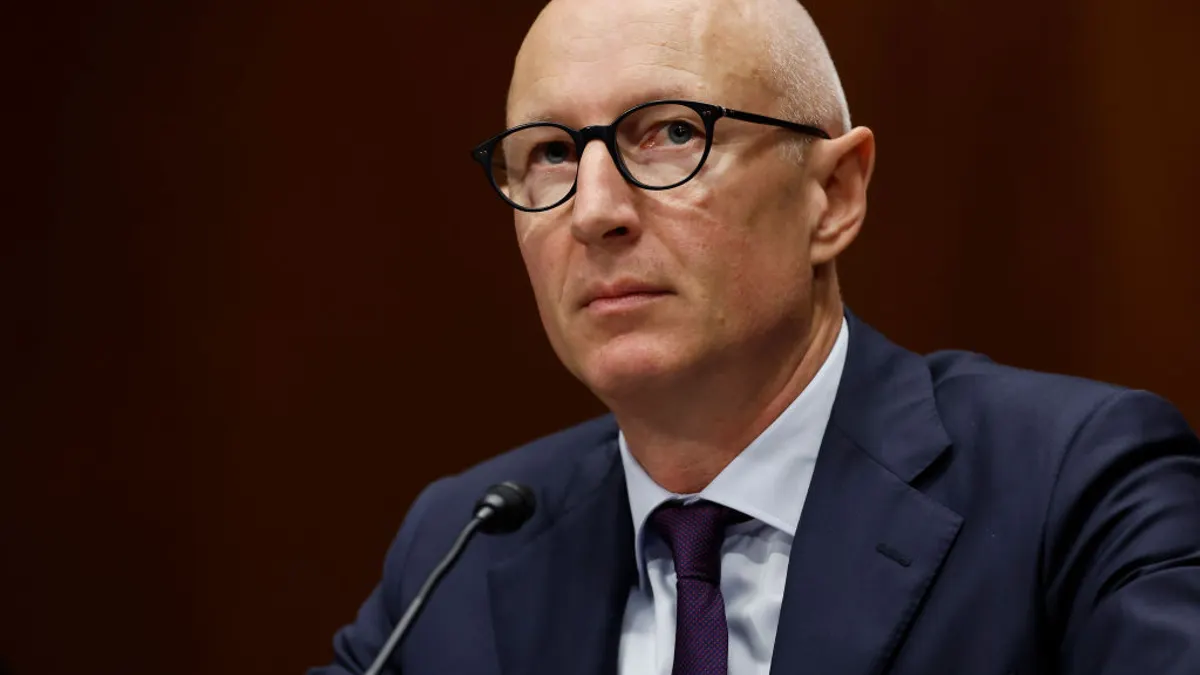Experts discuss the importance of mentoring, sponsorship, and coaching in career development.
Mentoring has been a common tool to help employees learn from and take advantage of the experience of others. A consensus among our experts is that all employees can benefit from having mentors at different stages of their careers, especially in the pharmaceutical industry.
But even more important is having a sponsor, says Laurie Cooke, CEO of the Healthcare Businesswomen’s Association. A sponsor — or what some might call an advocate or champion — can do more than just guide a person; he or she actually has skin in the game to make sure the employee makes it to the next level, she says.
“Mentors and sponsors advance someone’s careers," she says. “A mentor provides advice and guidance on a specific topic or how to get to the next level. A sponsor is willing to put his or her political capital on the line to actually get them there. Both roles are important."
Ms. Cooke says the significant impact of sponsorship is realized when executives are discussing high-potential employees.
A study done in 2011 by Catalyst found that effective sponsorship is critical to accelerating a woman’s career — from getting her noticed by senior-level executives to being considered for her company’s top jobs. Good sponsors can supercharge a woman’s career by providing her with access to essential networks, bringing her achievements to the attention of senior-level executives, and recommending her for key assignments, Catalyst executives say.
The Catalyst study also found that smart companies create environments where sponsorship thrives. Companies that educate their employees about sponsorship, link it to talent management systems, and make it a hallmark of organizational strategy will reap tremendous rewards, Catalyst executives say.
“Women are often less practiced than their male counterparts and may feel uncomfortable when speaking about their strengths, their accomplishments, or stating what they want," Ms. Cooke says. “Women need to step outside their comfort zone and take advantage of opportunities — so don’t eat lunch at your desk and miss the chance to build a strong network. Women need to work on raising their profiles; speak up at meetings; serve on cross-functional and ideally global teams; or volunteer for a high-visibility corporate initiative, for example."
Mentoring to Advance Careers
Shakira Irizarry, associate director of recruitment at Randstad Pharma, says mentors can be brought in at any point in a person’s career and the appropriate mentor is dependent on the position and goals.
“Typically goals and expectations for a mentor/mentee relationship should be discussed up front, and this will give the mentee an opportunity to communicate what he or she wants to accomplish," she says.
There are many types of mentors, Ms. Cooke says.
“A mentor can be someone you are inspired by or someone you can learn from along the way," she says. “Some people like to build or refer to mentors as their own personal board of directors."
At Novo Nordisk, career development, coaching, and mentoring are part of the company culture, says Andy Ajello, corporate VP of national diabetes sales. Two years ago, the company launched a program designed to define how the company would strive for success in the next decade.
“The Novo Nordisk Way is our foundation and what we base decisions on, including the type of culture we’re going to have," he says. “Part of this is helping employees build a career tree. For example, on the diabetes sales side, a career tree would list all of the different options for movement and competencies, technical and leadership, that employees may or may not need, starting at the entry level rep position and going up through the organization. It is a very robust plan that provides the necessary steps to get to any desired position."
The company also has a formal mentoring program that was introduced two years ago. Both mentors and mentees can apply for the mentoring program through the company’s intranet site.
“Mentoring is part of the company culture," Mr. Ajello says. “All employees are encouraged to participate. The tool provides a structured process to the mentor/mentee relationship. We watch to make sure we have enough mentors. We recommend every employee at every level has a mentor."
Ms. Cooke says it takes a good deal of thought, effort, and resources for a company to put together a mentoring program.
“Most often, formal mentoring programs are found in larger companies because of the resource and cost required," she says. “But that shouldn’t stop someone from being a mentor or securing a mentor within or outside her own company. For example, the HBA has mentoring programs across its chapters. Through the association, someone can secure a mentor even if her company does not have a formal mentoring program or to supplement her company’s offering and gain an external perspective."
Leona Blustein, Pharm.D., program director of the industry residency program and assistant professor of clinical pharmacy, University of the Sciences’ Philadelphia College of Pharmacy, says people can benefit from having mentors at any point in their careers and mentors can provide guidance to people who haven’t yet entered the workforce.
“A mentor can help a student who is still trying to find his or her way," she says. “Having a mentor early on can provide guidance on where the mentees see themselves in the future."
Ms. Blustein says mentors should be very passionate about the relationship.
“They need to be excited to work with an individual, they need to have the time to commit to the relationship, and they need to be willing to help the mentee identify goals and objectives going forward."
Mentor vs. Coach
Industry experts say coaching has become a common career development tool, especially in the pharmaceutical industry. Coaching can be valuable for someone who is trying to improve specific skills, for example, public speaking, communications, or interpersonal relationships.
Novo Nordisk makes a significant commitment to its employees through the use of coaches and executive development, Mr. Ajello says.
“Those of us on the executive team have a coach," he says. “Our president meets with us and our coach twice a year to review how we are progressing and gives open and honest feedback on where we stand. Then each team member works with the coach on a development plan and revisits that plan six months later."
The company also focused on and invested in developing executive leaders from within and enabling them to lead through rapid growth and change. Each senior executive participates in a program called My Leadership Journey, a year-long custom executive development program in partnership with Warton Executive Education and numerous coaches. Mr. Ajello says about 100 people in the company have participated in the leadership program. He says each of his five direct reports and the directors who report to them — about 40 people in all — have a coach.
Darelyn (DJ) Mitsch, president and founder of The Pyramid Resource Group, says coaching is the missing link in training efforts.
“People go to a training class, get a great experience, and then go back to doing things the way they did before," she says. “Coaching makes people self aware and want to take new actions. Coaching makes training stick."
Ms. Mitsch clarifies that a coach’s role is different from that of a mentor.
“A coach partners with people to expand self-awareness and gain an understanding of what makes them tick, including habits and communications," she says. “A mentor provides guidance in the form of advice and expertise in the relationship."
Robert Meyers, senior consultant, Impact Group, says in the coaching process it’s important to select one or two competencies to work on and then build a plan around improving on those particular areas.
“A good coaching plan always has the employee’s manager involved to help define the goals," he says. “Every good coaching process should have a defined goal."
Gaylene Xanthopoulos, founder and president of The Leadership Edge, says coaches need to be aligned with the company’s culture.
“If a coach is leading an individual in one direction and the corporate culture and the beliefs of the company are totally different, the employee won’t succeed," she says.
Ms. Xanthopoulos says coaching can also benefit employees who are changing roles.
“It’s important to remember that the skills that make someone successful in one role may not be the same in the next role," she says. “Being an excellent scientist doesn’t make someone automatically successful as a project leader, manager, or executive in a corporate role."
Experts say the impact of coaching can be measured, sometimes in ROI, but more often with a look at the impact on business.
“Changing an individual’s behavior or developing that person’s skill may not at first glance have an obvious direct bottom-line impact, but improving someone’s reliability, team work, or communications will accelerate a positive impact on the team’s ability to deliver results, which reduces burn out, ensures they reach milestones, and supports the retention of great talent," Ms. Xanthopoulos says.
“Coaching makes training stick. Coaching helps people develop as leaders and look at leading differently. Coaching is often the missing ingredient for career development. "
DJ Mitsch / The Pyramid Resource Group
“A sponsor — some would call an advocate — is someone who has political capital on the line to make sure their sponsored employee makes it successfully to that next level."
Laurie Cooke / Healthcare Businesswomen’s Association
“Having a mentor can provide the mentee with guidance and support to achieve advancement in one’s career within the pharmaceutical industry."
Dr. Leona Blustein Philadelphia College of Pharmacy
“People should look to engage a coach early in their career because what may prove to be successful in one role may not be how success is measured in the next role."
Gaylene Xanthopoulos / The Leadership Edge
“Every good coaching process should have a defined goal."
Robert Meyers / Impact Group
Executive Coaching Results
Participants in a large-scale executive coaching initiative at a major pharma company reported the following:
- 93% believe that coaching has helped them to develop new skills to overcome challenges at work.
- 95% believe that coaching has helped with their career development.
- 87% were either promoted or moved to another role to further their development within two years.
Source: Pyramid Resource Group, 2009 An Accelerated Women Leadership Development Program
WHITE PAPER
How Women Use Coaches to Go for Gold in 2012 Olympics and in Business
Sponsored by: The Pyramid Resource Group
VIDEO
Leadership Development Through Sponsorship
Thought Leader: Laurie Cooke, HBA
EXPERTS
Andy Ajello. Corporate VP of National Diabetes Sales, Novo Nordisk, a global healthcare company with leadership in diabetes care. For more information, visit novonordisk-us.com.
Leona Blustein, Pharm.D. Program Director of the Industry Residency Program and Assistant Professor of Clinical Pharmacy, University of the Sciences’ Philadelphia College of Pharmacy, a college of pharmacy. For more information, visit usciences.edu.
Laurie Cooke. CEO, Healthcare Businesswomen’s Association, a nonprofit organization dedicated to furthering the advancement and impact of women in healthcare worldwide. For more information, visit hbanet.org, or email [email protected].
Shakira Irizarry. Associate Director of Recruitment, Randstad Pharma, which matches professionals with career opportunities at the world’s leading biopharma and life- sciences companies. For more information, visit pharma.randstadusa.com,or email [email protected].
Robert Meyers. Senior Consultant, Impact Group, a global human resources services organization. For more information, visit ighr.com.
Darelyn (DJ) Mitsch. President and Founder, The Pyramid Resource Group Inc., a worldwide coaching company. For more information, visit pyramidresource.com, or email [email protected].
Gaylene Xanthopoulos. Founder and President, The Leadership Edge, which provides training and consulting services to life-sciences companies. For more information, visit theleadershipedge
















